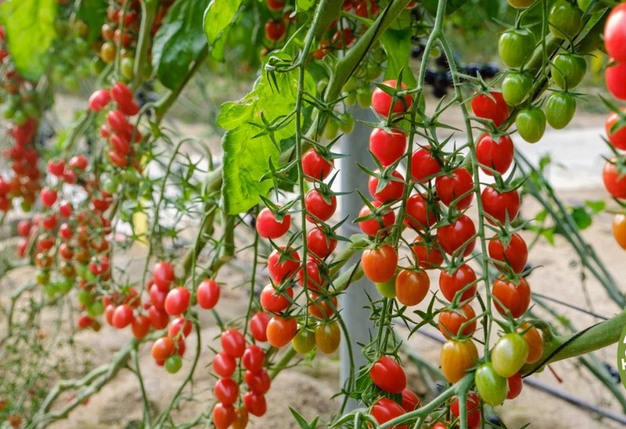“The rugose virus is impacting all tomatoes—but especially the cluster markets such as snacking tomatoes,” said Stéphane Le Caro, Syngenta Vegetable Seeds Portfolio Lead for Indeterminate Tomato, Passive Greenhouse. “It’s very important to find resistance in snacking tomatoes like baby plum, and now Syngenta has an answer for that premium market.”
Convenience, sweet flavor, and color are all characteristics that helped the snacking tomato market find success in the early 2010s when Syngenta introduced Sweetelle. Today, Syngenta is protecting those attributes consumers love with ToBRFV resist
Consumers around the world have enjoyed snacking tomatoes for more than a decade. Providing access to a reliable product that meets customer standards is a responsibility Syngenta takes very seriously—it’s our reputation and our grower’s livelihoods at stake.
“Snacking tomatoes are something people have come to love because they’re healthy, they’re practical—you just open and eat them,” said Ruud Kaagman, Syngenta Global Crop Unit Head, Tomato. “You can give your children these snacks and feel good because they’re healthy, and Syngenta snacking tomatoes are something just completely unique. They have a crunch and a great flavor balance of sweet and sour.”

Building on the legacy of innovation, including five varieties with ToBRFV resistance* already, the baby plum tomatoes nearing trial completion include the fruit quality, disease resistance, and (most importantly) flavor and eating experience required in this market. For growers, retailers, and consumers, ToBRFV-resistant baby plum that doesn’t maintain great flavor is simply not an option.
“We won’t launch an incomplete product that simply has ToBRFV resistance and lacking everything else,” said Ernesto Hagelsieb, Americas’ Portfolio Manager, Tomato. “Our products bring the high qualities we’d expect, with ToBRFV resistance on top of it all.”
Continued Research for New Solutions Against ToBRFV
The researchers at Syngenta are continuing to work on converting resistance into more varieties and types of tomatoes. In addition, the experts are committed to ongoing research into new solutions against ToBRFV as the virus continues to evolve.
“We know the virus is changing, and it can cause a lot of damage, especially in yield, impacting the plant and changing its behavior,” said Rik Lootens, Syngenta Portfolio Lead for Tomato and Blocky Pepper, Active Greenhouse and High-Tech Production. “Viruses are unpredictable and hard to control. It’s our goal to go as fast as possible to bring new resistance to the market.
“We have resistance and have had it for several years – since 2020. But we’re continuing to research many new varieties in the beef segments but also in mini cluster, saladette, beef cluster, and more,” he continued.
For more information:
Syngenta Vegetable Seeds
www.syngentavegetables.com
